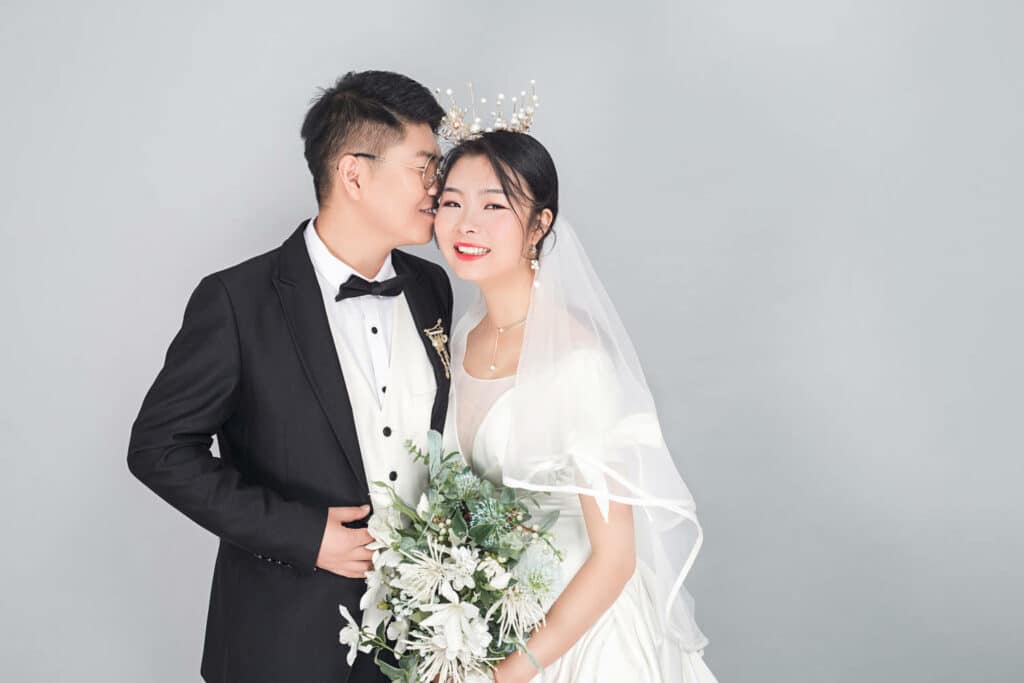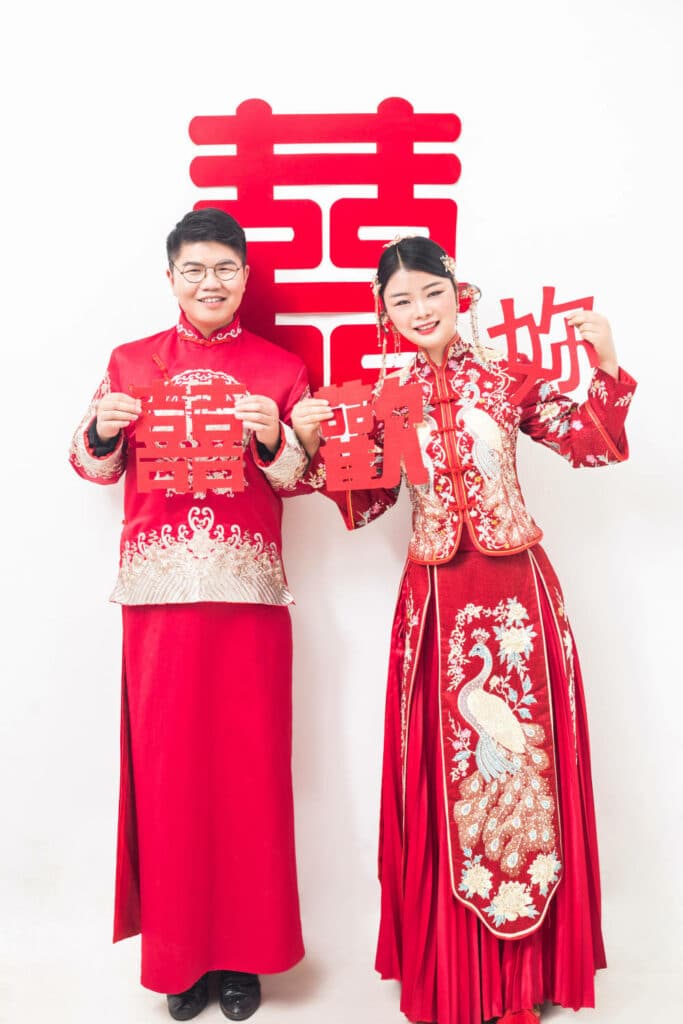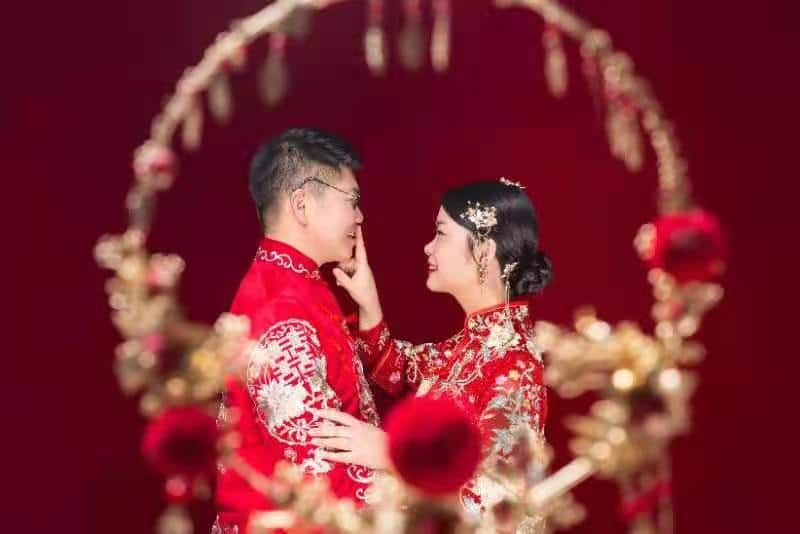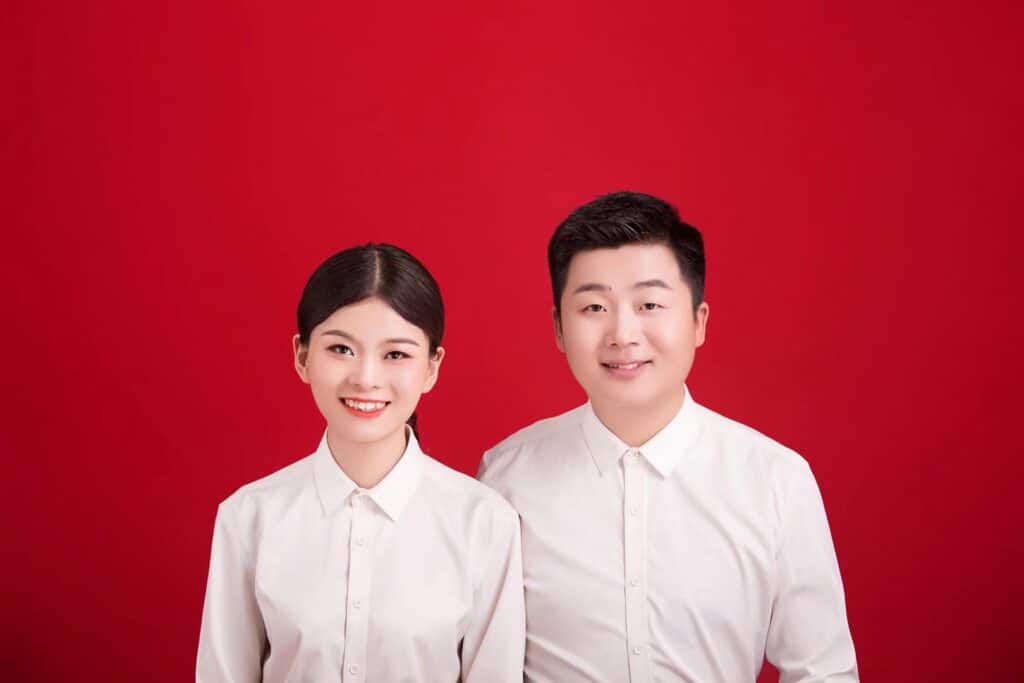How to say I Love You in China in the Chinese Language and Culture
Written by Ella Norris, a native resident of China, and translated by her husband Scott Norris. Photographs used with permission of several very kind Chinese residents, 叶子,果子,and 燕子.
It would seem that there are no relationships that are used to directly expressing love in China’s culture.
Chinese people are intrinsically reserved by nature. So, regardless of whether you’re talking about relatives, spouses, or friends, Chinese people are not good at saying the three words “我爱你” (Wǒ aì nǐ, I love you).
Saying “我爱你” (Wǒ aì nǐ, I love you) aloud will always feel a little uncomfortable for the Chinese. Many husbands and wives go their entire lifetime without speaking the words “我爱你” (Wǒ aì nǐ, I love you) to their partner. My almost 60- year old parents are a living example.
Therefore, when Chinese people say “我爱你” (Wǒ aì nǐ, I love you) it depends entirely on where they are and who they are saying it to.
As an aside, please read this reminder.
Family Relationships – Expressing Love in China
When expressing love and concern, the overwhelming majority of Chinese households will choose other words than “我爱你” (Wǒ aì nǐ, I love you). Most are not used to gestures such as a hug. Most use indirect means to express their love to family members.
Between Siblings
Between siblings, the word 爱 (aì, love) is virtually never spoken. To show that they care, siblings usually ask how life has been recently. Or when saying goodbye, they might use the phrase “走了啊” (zǒu le a, I’m going now). Adding the sound 啊 (a) to this sentence adds no extra meaning, but makes the tone more affectionate.
This phrase is suitable to use with every family member. It subtlety shows care and an unwillingness to part with them.
Between Children and Parents
Like between other family members, in normal circumstances children and parents are simply not used to saying “我爱你” (Wǒ aì nǐ, I love you). However, there is one case where these words are spoken.
When a child is still young, the mother will often say “妈妈爱你!” (Māma aì nǐ!, Mummy loves you!) or “妈妈好爱你” (Māma hǎo aì nǐ!, Mummy loves you so much!). If it’s a father, 爸爸爱你!” (Bàba aì nǐ!, Daddy loves you!).
Habitually in everyday life when we express “I love you”, we’ll add a form of address like 妈妈 (māma, mummy) to the start of the sentence. Saying it without this addition would seem a little overdramatic and may take the other person off-guard.
Children would use 妈妈 (māma, mummy) or 爸爸 (bàba, daddy). Once grown up, you can say 妈 (mā, mum), 爸 (bà, dad) or 老妈 (lǎomā, mum), 老爸 (lǎobà, dad). The latter pair are more casual and mean you’re on good terms with each other.
“我爱你” (Wǒ aì nǐ, I love you) is suitable between couples, not family members. I can’t imagine what reaction my Dad would have if I said this while making direct eye contact. However, if I said “老爸我爱你” (Lǎobā wǒ aì nǐ, I love you Dad) it would be much easier for him to accept and understand.
Between Parents
There is a very great proportion of elderly husbands and wives who have been together for a lifetime, yet the wife has never heard the husband speak the words “我爱你” (Wǒ aì nǐ, I love you). Does this mean they’re not in love with each other? Not really.
This generation’s expression of love is less apparent than the younger generation. They incline towards using real actions to express love. For example, inviting their other half to a dinner date, gifting a present, or going to the cinema. Anything that people in love like to do together. They just won’t say “我爱你” (Wǒ aì nǐ, I love you).
So in this case, it’s very easy to create misunderstandings where the wife feels unloved or feels that the husband is not romantic enough. If the man can, for example, help share household chores each day, use real actions to take care of showing gratitude for what she has done for the family, then the woman won’t care if she doesn’t hear those three words “我爱你” (Wǒ aì nǐ, I love you).
If the man fails to show his love through action or make her feel his love, then conflict will arise.
Expressing Love Between Friends in China
Same-sex Friends
If people are hesitant to say “我爱你” (Wǒ aì nǐ, I love you) between family members, then you can imagine how difficult it must be for friends. If friends help us do something important and we want to express how grateful we are, or if we say goodbye to an especially good friend, then there are other ways we can use the word “爱” (aì, love).
Other than simply saying “谢谢” (xièxie, thank you) or “再见” (zàijiàn, goodbye) you can use “爱你!” (aì nǐ! Love you!). This is much more common among female friends. If you’re speaking to more than one friend you’d say “爱你们!” (aì nǐ men! Love you guys!). This is a little more casual. It won’t be misunderstood or create any weird, awkward feelings.
To emphasize: “我爱你” (Wǒ aì nǐ, I love you) is exclusively used by couples.
Opposite-sex Friends
In traditional Chinese culture, there is a distinction between man and woman. When giving and receiving objects, they should not even touch hands. Similarly, men and women, unless they are married, should not have anything to do with one another. Particularly when it comes to physical contact.
If your relationship becomes visible in some way in public, you’ll be mocked or punished terribly. Although modern society doesn’t carry out these punishments anymore, these notions still consciously exist in Chinese people’s thoughts.
So if you’re not boyfriend/girlfriend or husband/wife, then the best thing is not to say the word “爱” (aì, love). Especially when one or both of the parties already have another half. In this case, the word “爱” (aì, love) is very taboo.
For example, if I have a Chinese husband and I say “我爱你” (Wǒ aì nǐ, I love you) to another man then, regardless of whether it’s for an understandable reason, my husband would be humiliated and provoked. If it’s serious, it may impact your relationship.
As a result of this, the different ways to express love between opposite-sex friends are very few. There are many opposite-sex friends who, once one or both are married, will no longer be able to maintain their friendship.
There is a phrase in Chinese, “结婚后就没有异性朋友了” (jié hūn hòu jìu méi yǒu yì xìng péng you le) which means that after marriage, there can be no opposite-sex friendships.
Of course, if both parties are single then you don’t have to think about it too much. You can express whatever you want to. This is perhaps why these days more and more young people are in no rush to find a partner.
Couples in Chinese Love Culture
For heterosexual couples, there are distinct stages in the relationship. Chinese people are very aware of these: the first date, becoming lovers, getting married, and having babies. At each stage, the way to verbalise love is different.
The First Date
Before a relationship is solidified there may be many dates, but as long as the relationship is uncertain, we won’t flippantly say the three words “我爱你” (Wǒ aì nǐ, I love you). The meaning behind these words is deep, so when we’ve only just begun to date, the depth of understanding between one another isn’t deep enough. So, if you say “我爱你” (Wǒ aì nǐ, I love you) too quickly, you’ll leave the impression that you’re flippant with your feelings. You’re too easy to win over.
When we want to earnestly express this feeling for the first time, we’ll often say “我喜欢你” (wǒ xǐhuan nǐ, I like you). In the early stages of love, saying “我喜欢你” (wǒ xǐhuan nǐ, I like you) is actually not at all less powerful than “我爱你” (Wǒ aì nǐ, I love you). In fact, it may even be more so.
When women hear these words they’ll often be overwhelmed by emotion and happiness, because someone has professed love to them. Of course, this assumes that they both feel the same way about each other. Therefore, the phrase “我喜欢你” (wǒ xǐhuan nǐ, I like you) is very suitable for a couple in the first stages of their love.
After Your Relationship Is Certain
Once the relationship is a sure thing, it is more stable. At the same time, your understanding of your partner is greater every day. You can now abandon your initial reservation and care. You can act as you wish and be more bold or daring. You can even affectionately call your girlfriend “老婆” (lǎopo, wife) or your boyfriend “老公” (lǎogōng, husband). This is very common in China.
The most common way to make a public display of affection is to change your other half’s WeChat (WeChat is the most popular messenger/social media app in China) nickname to “老公” (lǎogōng, husband) or “老婆” (lǎopo, wife). This is acceptable even if the couple hasn’t been legally bonded by marriage at that time.
If the couple has been apart for a while, they may use WeChat to send a short message like “老公,我想你了” (lǎogōng, wǒ xiǎng nǐ le, Husband, I miss you); “老婆,我想你了” (lǎopo, wǒ xiǎng nǐ le, Wife, I miss you). If you want your message to express love, you might also say “老公我爱你” (lǎogōng, wǒ aì nǐ, I love you husband); “老婆我爱你” (lǎopo, wǒ aì nǐ, I love you wife).
It’s worth noting that the direct translation of husband/wife here sounds formal in English, but this is very affectionate, almost cute, in Chinese. The addition here also softens the overall strength of the phrase.
Marriage in Chinese Culture


In Ancient China it was extremely important to pay attention to the formal, legal marriage process. If a man wanted to marry a woman, then he first had to find a matchmaker to act as an intermediary between the two families. The matchmaker would help to deliver each family’s thoughts and messages about the proposed bride and groom.
If the woman’s side decided the marriage is a good match, then the man’s side would bring gifts to propose to the woman’s side. These betrothal gifts were generally money and valuable objects like jewelry. Once the woman’s side accepts the betrothal gifts, there’s no going back.

This tradition has been carried forward into the modern-day. Gifts are an extremely important piece of Ancient Chinese culture. The ancient Chinese government even had a specific department dedicated to this: The Department of Rites (礼部 Lǐbù, literally: gift-department). They governed cultural rites and ceremonies.
In most Chinese villages it’s still popular to give gifts and dowry. These are considered necessary because in farming villages, when your daughter is married off you will lose her assistance around the farm. So the money is seen as a form of compensation for this loss of labor.
However, nowadays, this makes many feel as if a trade is taking place. For Chinese people in the younger generation, this tradition is gradually being abandoned. In modern China, there are many marriages where no money is exchanged.

After marriage, after becoming legal husband and wife, the way for partners to express love can finally become as is proper and natural: “我爱你” (Wǒ aì nǐ, I love you). However, in everyday life, we’ll normally add “老公” (lǎogōng, husband) or “老婆” (lǎopo, wife) to the beginning of the sentence.
Saying the three words alone is still reserved for special occasions or special moments. For example, on some festival or commemoration when the husband wants to create a romantic atmosphere. He might bring his wife close and intimately say “我爱你” (Wǒ aì nǐ, I love you).

There are however many husbands and wives who are more traditional and reserved. Even though they’re married, they won’t say “我爱你” (Wǒ aì nǐ, I love you). This phenomenon is most common in men. Wives would love to hear these words, but husbands are unable to speak them.
This situation creates conflict between many couples because the wife erroneously believes that she is unloved. The husband knows that he truly loves her, so why must he say the words “我爱你” (Wǒ aì nǐ, I love you)?
There are also some couples that, when apart from one another, will be able to say “我爱你” (Wǒ aì nǐ, I love you) through WeChat messenger, but when they are face-to-face are very much unable to speak the words out loud.

Giving Birth
When women have children, their identity changes from girl to mother in the blink of an eye. Responsibility and calling strengthen. At the same time, the heart and body are exhausted by the recent experience and process.
At this moment, the husband should be beside the bed and say to her “老婆辛苦了” (lǎopo xīnkǔ le). A simple sentence. It not only contains the husband’s love, but also his gratitude and emotion. It’s hard to translate literally as it encompasses a range of emotions, but the general sense is “Wife, you have done so much, and I am so grateful for it all.”
At this moment, women are more ready to hear their husband’s deep affection“老婆辛苦了” (lǎopo xīnkǔ le, wife you have done so much) rather than “我爱你” (Wǒ aì nǐ, I love you). The former expresses not only the husband’s love but also appreciation and acknowledgment.
Wedding Anniversaries in China
Chinese people don’t attach any great importance to wedding anniversaries. Especially people born before the ’70s. For example, when celebrating a 50th wedding anniversary, normally it is left solely to the children to make arrangements.
For husbands and wives of this age, they’re unlikely to say the three words “我爱你” (Wǒ aì nǐ, I love you). This is due to a particular Chinese concept. When people get older and still declare their love openly, it is believed that they’ll be made fun of by other people. Therefore, they’re too shy to speak out. At the most, people will say “老伴辛苦了” (lǎobàn xīnkǔ le, old partner you have done so much) or assuming that their surname is Wang “老王辛苦了” (lǎo Wáng xīnkǔ le, old Wang you have done so much).
When the elderly speak this phrase to their life partner, it is imbued with a father’s and mother’s lifetime of love.
Same-sex Couples
Same-sex love has not yet been legitimized in China. Therefore, many same-sex couples must endure pressure from society. Most people choose to hide because they are worried about views or comments from others, even to the extent that they won’t let their own family know. You’re lucky indeed to find a partner if you are homosexual, as this means there’s someone willing to show their true self to you.
Recently in China, two women were married. One was the student of a famous dancer. Their marriage video went viral and thus created an example for many like them.
They bravely announced they want to be togethe, and their marriage to the world. They received both families’ blessings and held a grand wedding ceremony.
China’s society is little by little beginning to accept same-sex couples, but there’s still a long way to go. I hope that in the future every person is able to courageously seek the life that they want.
Loving Openly In China
As you’ve seen, the different ways of expressing love in China are very subtle. Adding or removing a single word can help you to avoid or make you subject to embarrassment.
Not only words, but actions too are crucial. If you’re in a public space like the subway and kiss or hug your other half a little too passionately, you may be subject to a sudden wave of contemptuous looks. That being said, if you meet a loved one at an airport, it’s perfectly okay to embrace and kiss them.
People’s concept of love is leaning more and more towards an open-minded and forgiving ideology as generations evolve. Bad traditions are being left behind and people’s rights are expanding.
I was born in the nineties. Perhaps our next generation won’t have to worry about dowry and proposal gifts. Perhaps external factors will no longer influence the love between two people in China. Perhaps there will only be love.
If you enjoyed this article, please read the others in the Love Series. All of them are linked there and are a good cultural learning opportunity.
Please share with your friends using the buttons below and sign-up for our newsletter to receive advice straight in your inbox.




